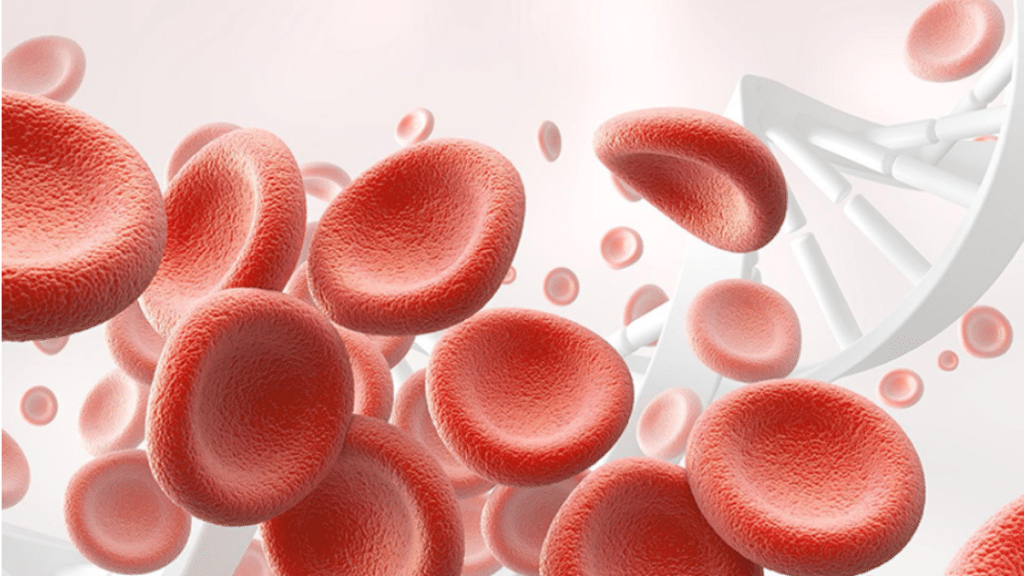Blood disorders are a group of diseases involving blood cells and the organs in which they are produced, including red blood cells, white blood cells, platelets, and bone marrow. It affects the production, function, and quality of blood, which in turn leads to health problems. Common types of blood disorders include leukemia, lymphoma, myeloma, sickle cell disease, and some rare blood disorder diseases.
Due to the diversity and complexity of blood disorders, timely diagnosis and personalized treatment have become key to the effective management of blood disorders. In recent years, breakthroughs in therapies such as CAR T-cell (Chimeric antigen receptor T-cell) and HSCT (Hematopoietic stem cell transplantation) have brought new hope to patients.
In this article, we will delve into the characteristics of common types of blood disorders and focus on CAR T-cell and HSCT therapies, providing valuable references for patients.
Common Types of Blood Disorders
Blood disorders may be caused by genetic factors, environmental factors, or the interaction of both. Below are a few common types of blood disorders:
1. Leukemia
Leukemia is a malignant clonal disease derived from hematopoietic stem cells. [1] Leukemia cells in the bone marrow and some other blood-generating tissues proliferate abnormally, resulting in suppression of normal blood production and leakage to other organs. These abnormal white blood cells can’t perform normal immune functions.
Leukemia can be divided into acute and chronic leukemia. Acute leukemia progresses rapidly and requires immediate therapy. Chronic leukemia, on the other hand, progresses more slowly. Common leukemia symptoms include anemia, bleeding, enlarged liver and spleen lymph nodes, fever, etc.
2. Lymphoma
Lymphoma is a blood cell tumor caused by lymphocytic lesions. [2] These cells form lumps in lymph nodes, the spleen, bone marrow, and other areas, leading to symptoms such as lymph node enlargement, fever, and weight loss.
Lymphoma is broadly categorized into two main types: Hodgkin’s lymphoma and non-Hodgkin’s lymphoma. A notable subtype of non-Hodgkin’s lymphoma is diffuse large B-cell lymphoma, highlighting the diversity within this category.
3. Myeloma
Myeloma is a disease in which plasma cells in the bone marrow are transformed into cancer cells and proliferate abnormally. Plasma cells are responsible for producing antibodies, but abnormally proliferating plasma cells will release harmful substances that can lead to bone destruction, hypercalcemia, and anemia. Multiple myeloma is the most common form of myeloma.
4. Sickle Cell Disease
Sickle cell disease is an inherited blood disorder disease in which red blood cells are abnormally shaped due to a mutation in the hemoglobin gene. [3] In sickle cell disease, the red blood cells have a sickle shape, which breaks down easily and collects in the blood vessels, causing them to become clogged.
In addition, it can lead to an inadequate supply of hemoglobin, and the body does not get enough oxygen. Symptoms of sickle cell disease include pain, infection, and anemia.
5. Rare Diseases
Some rare diseases include X-linked agammaglobulinemia, chronic granulomatous disease (CGD), Wiskott-Aldrich syndrome (WAS), severe combined immunodeficiency (SCID), and hemophagocytic lymphohistiocytosis (HLH).
Their low prevalence, complexity of pathologic mechanisms, and lack of large-scale clinical studies have made their diagnosis and treatment challenging. However, with the development of medicine, targeted therapy and immunotherapy for rare blood disorders have made significant progress.

GHG’s Blood Disease Therapy
There are different treatment methods for different types of blood disorders. GoBroad Healthcare Group (GHG) is a research-oriented hospital that has top lung cancer hospitals, leukemia hospitals, lymphoma hospitals, and other cancer research hospitals. It focuses on researching specialized diseases such as hematological diseases and solid tumors.
GHG’s CAR T-cell therapy and HSCT therapy are their two cutting-edge blood disease treatment methods, which, together with traditional chemotherapy, radiotherapy, and immunotherapy, have brought new hope to blood disease patients. The following is a detailed introduction:
1. CAR T-cell therapy
CAR T-cell therapy is an immunotherapy method. It refers to the use of genetic engineering technology to modify a patient’s own T cells to express chimeric antigen receptors (CARs), enabling them to accurately identify and attack tumor cells.
The advantages of T cell treatment include:
Highly targeted treatment, which can accurately identify and attack tumor cells.
Significant treatment effect.
It can form immune memory cells and provide long-term protection.
CAR T-cell therapy has significant therapeutic effects in acute lymphoblastic leukemia, diffuse large B-cell lymphoma, and multiple myeloma.
2. HSCT therapy
HSCT is a therapy that restores hematopoietic and immune function in patients by infusing normal hematopoietic stem cells into them. According to the cell resources, it can be divided into autologous hematopoietic stem cell transplantation (ASCT) and allogeneic hematopoietic stem cell transplantation (allo-HSCT).
The advantages of HSCT therapy include:
Help patients restore normal hematopoietic function.
High cure rate.
HSCT therapy is commonly used for acute myeloid leukemia, aplastic anemia, multiple myeloma, etc.
Here is the CAR T vs stem cell transplant analysis:
| Therapy | Principle | Advantages | Applications |
| CAR T-cell therapy | Modifying one’s own T cells | Highly targeted, significant treatment effect, long-term protection | Acute lymphoblastic leukemia, diffuse large B-cell lymphoma, and multiple myeloma |
| HSCT therapy | Infusing normal hematopoietic stem cells | Restore normal hematopoietic function, high cure rate | Acute myeloid leukemia, aplastic anemia, and multiple myeloma |
In the actual treatment of complex and severe types of blood disorders, GHG provides individualized treatment solutions for each patient through the effective combination of HSCT, CAR T-cell therapy, chemotherapy, radiotherapy, immunotherapy, targeted therapy, and other technologies. Their collaborative model of multidisciplinary teamwork guarantees patients’ whole treatment period and greatly improves the effect of various types of blood disorders.
Conclusion
Overall, HSCT and CAR T cell treatment have played an important role in the treatment of contemporary hematological diseases. However, regardless of which method or combination therapy is chosen, early diagnosis is the key to controlling the deterioration of various types of blood diseases.
GHG encourages patients to undergo early diagnosis and personalized treatment to achieve optimal treatment outcomes. Contact them now to schedule a detailed treatment solution!
